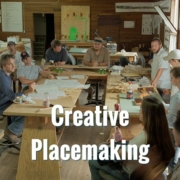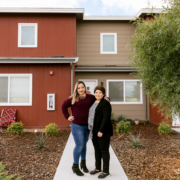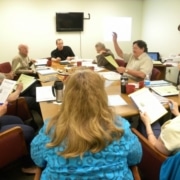In the summer of 2022, the New Mexico Mortgage Finance Authority (MFA) faced a difficult challenge. Several state legislators and farmworker groups asked the organization to help meet the housing needs of migrant and seasonal farmworkers. Since farms employ farmworkers with the shifting seasons, many farmworkers only stay in a community for a few months before needing to move elsewhere in search of work. Affordable housing development is complex in the best of cases. Underwriting a project that would have a near complete turnover of residents every four or five months seemed almost impossible.
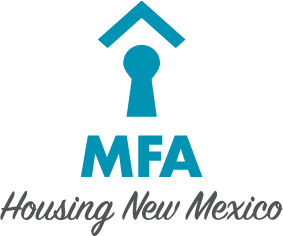 So, MFA called the Housing Assistance Council (HAC). This wasn’t the first or second time that HAC helped MFA address challenges in its programs. In fact, HAC and MFA have a working relationship well over two decades old. Because of this extensive engagement, MFA Executive Director and CEO Izzy Hernandez knew he could rely on HAC Housing Consultant Eugene (Gene) Gonzalez to help find a solution to this challenge.
So, MFA called the Housing Assistance Council (HAC). This wasn’t the first or second time that HAC helped MFA address challenges in its programs. In fact, HAC and MFA have a working relationship well over two decades old. Because of this extensive engagement, MFA Executive Director and CEO Izzy Hernandez knew he could rely on HAC Housing Consultant Eugene (Gene) Gonzalez to help find a solution to this challenge.
Gene connected MFA with groups across the southwest working on similar projects housing migrant farmworkers. With HAC’s help and advice from peers, MFA was able to identify a developer and line up alternate financing options for a project that meets this critical housing need. The development is in its initial phase, but for Hernandez, this is just the latest example of HAC’s reliable, ongoing partnership.
HAC began working with MFA in the early 2000s. A few years earlier, MFA was selected to administer all of New Mexico’s housing programs. Many of the on-the-ground housing organizations who needed MFA funding the most were struggling to obtain designation as community housing development organizations (CHDOs). CHDO designation is a prerequisite to accessing the federal and state programs MFA administered. So, HAC helped eight organizations identify their capacity needs, provided technical assistance to meet those needs, and guided them through the process to obtain CHDO designation. As a result, each of the eight organizations was able to access MFA funds, which allowed MFA to turn those program dollars into homes in communities that desperately needed them.
While the specifics of HAC and MFA’s collaboration has evolved over time to meet the unique needs of each project, the core challenge HAC helps MFA address remains the same. Like all state housing authorities, MFA relies on the success of its client housing organizations. If they do not succeed, MFA cannot make the most of federal and state programs and cannot meet, as Hernandez puts it, “the extraordinary need for affordable housing.” HAC has long helped and continues to help build the capacity of MFA clients. This not only helps to build more affordable homes in rural New Mexico; according to Hernandez, HAC’s work helps MFA “reach communities we couldn’t reach before.”
When HAC began working with Tierra Del Sol Housing Corporation, one of MFA’s clients, the organization was rehabbing nearly 100 homes per year and building only about nine units per year. HAC provided training and technical assistance to help Tierra Del Sol with land acquisition, green building, energy efficiency, and more. With HAC’s help, the nonprofit expanded its self-help program, began building entire neighborhoods of farmworker housing, and grew to become the largest housing rehabber in the state of New Mexico. In addition, TDS accomplished all this development while focusing work in colonias, communities near the U.S.-Mexico border characterized by high poverty rates and substandard living conditions. Looking back on this incredible success, Hernandez is quick to say that “HAC has played a big role in that.”
Nowadays, MFA frequently refers struggling clients to HAC. Once referred, HAC often includes these organizations in our capacity building and technical assistance cohorts, where they receive one-on-one technical guidance and capacity building assistance. According to Hernandez, whenever HAC receives a new round of funding for technical assistance, he receives a call from Gene asking which groups in New Mexico need help. “We have some groups that were on the bubble of surviving or not,” says Hernandez, “but we have never had one group go out of business. HAC kept them in the game.”
The three hundred plus housing organizations in New Mexico all play an important role in meeting the state’s housing needs. In 2021, they collectively assisted more than 25,000 families in finding quality affordable housing. HAC capacity building assistance helps to ensure that these groups can build homes, effectively implement housing assistance programs, and remain in compliance.
Click here to learn more about HAC’s training and technical assistance.

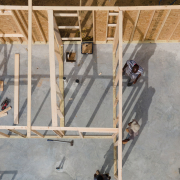 Rory Doyle
Rory Doyle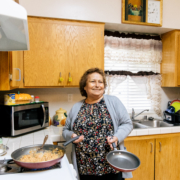
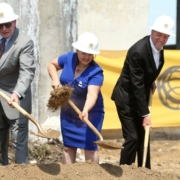
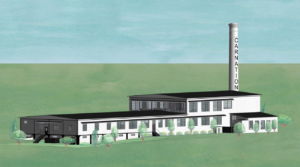 The Carnation Milk plant in Tupelo, Mississippi, has sat vacant since 1972. In about a year, that will change when 33 low-income senior households move into new affordable homes in this old factory. This May, Old Historic Carnation, LP broke ground on Carnation Village, a $16.8 million adaptive reuse project to convert the abandoned factory into 33 units of affordable senior housing. These units are sorely needed in Tupelo, a high-poverty community which needs over 1,500 additional senior affordable housing units. With a $325,000 loan from The Housing Assistance Council (HAC)—and two sixth-month extensions to that loan—the developer successfully navigated a predevelopment process mired in construction cost increases and unexpected funding gaps. Here’s how:
The Carnation Milk plant in Tupelo, Mississippi, has sat vacant since 1972. In about a year, that will change when 33 low-income senior households move into new affordable homes in this old factory. This May, Old Historic Carnation, LP broke ground on Carnation Village, a $16.8 million adaptive reuse project to convert the abandoned factory into 33 units of affordable senior housing. These units are sorely needed in Tupelo, a high-poverty community which needs over 1,500 additional senior affordable housing units. With a $325,000 loan from The Housing Assistance Council (HAC)—and two sixth-month extensions to that loan—the developer successfully navigated a predevelopment process mired in construction cost increases and unexpected funding gaps. Here’s how: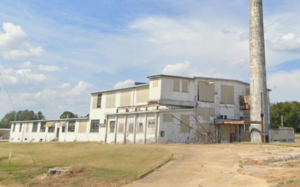 The original project scope called for 50 units: 25 from an adaptive re-use of the plant itself and another 25 in a second building to be constructed next door. When our loan closed in July 2021, the project budget totaled about $12.7 million, to be funded by Low Income Housing Tax Credits, Historic Tax Credits, and a $1.6 million equity investment. Our financing covered the predevelopment costs of the work required to get to construction financing closing including environmental testing, historic preservation approvals, tax credit application and reservation fees, a market study, and an appraisal.
The original project scope called for 50 units: 25 from an adaptive re-use of the plant itself and another 25 in a second building to be constructed next door. When our loan closed in July 2021, the project budget totaled about $12.7 million, to be funded by Low Income Housing Tax Credits, Historic Tax Credits, and a $1.6 million equity investment. Our financing covered the predevelopment costs of the work required to get to construction financing closing including environmental testing, historic preservation approvals, tax credit application and reservation fees, a market study, and an appraisal.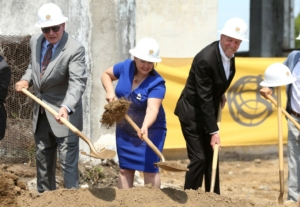
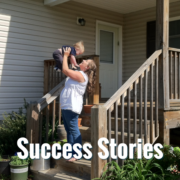
 So, MFA called the Housing Assistance Council (HAC). This wasn’t the first or second time that HAC helped MFA address challenges in its programs. In fact, HAC and MFA have a working relationship well over two decades old. Because of this extensive engagement, MFA Executive Director and CEO Izzy Hernandez knew he could rely on HAC Housing Consultant Eugene (Gene) Gonzalez to help find a solution to this challenge.
So, MFA called the Housing Assistance Council (HAC). This wasn’t the first or second time that HAC helped MFA address challenges in its programs. In fact, HAC and MFA have a working relationship well over two decades old. Because of this extensive engagement, MFA Executive Director and CEO Izzy Hernandez knew he could rely on HAC Housing Consultant Eugene (Gene) Gonzalez to help find a solution to this challenge.